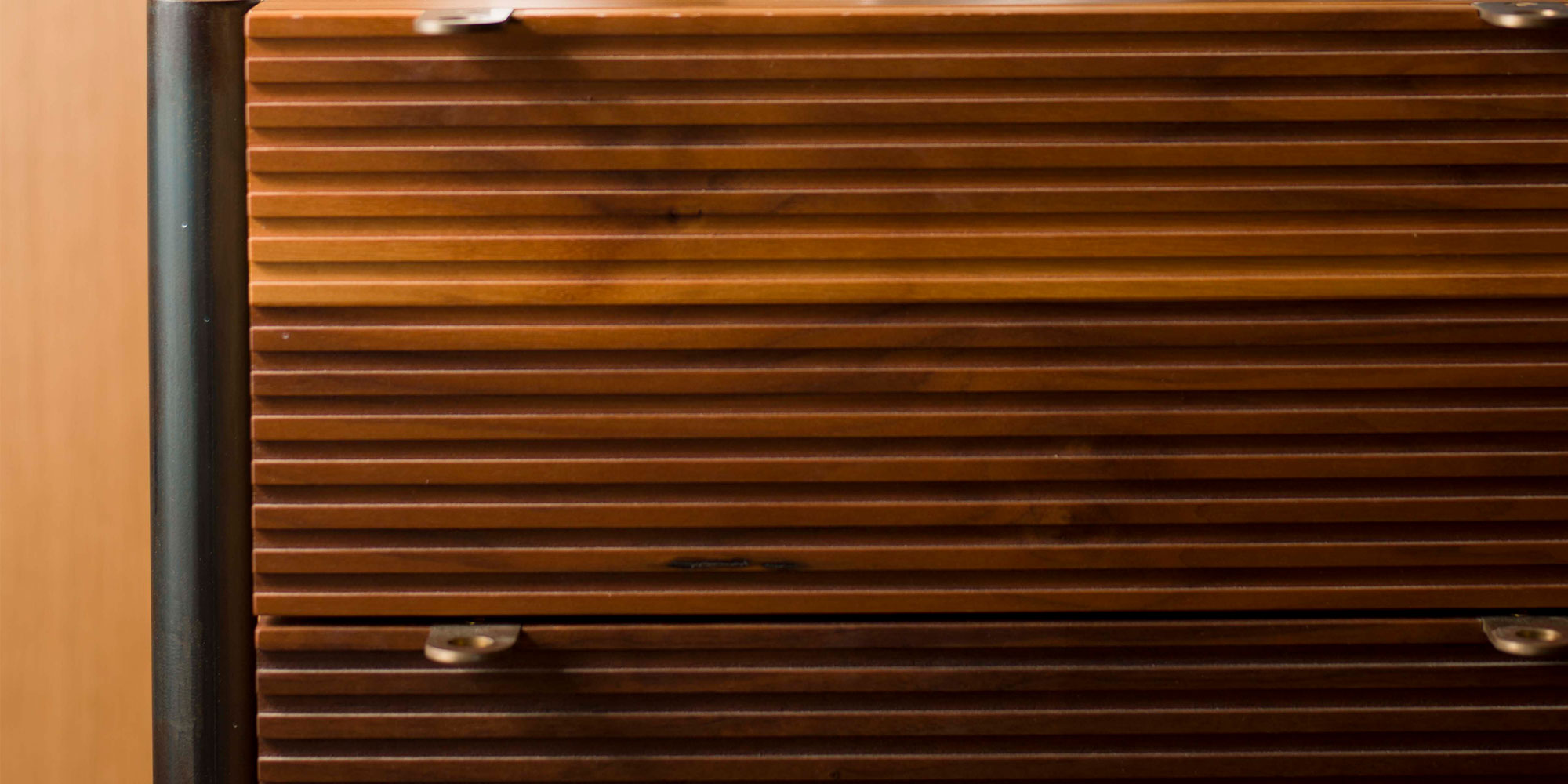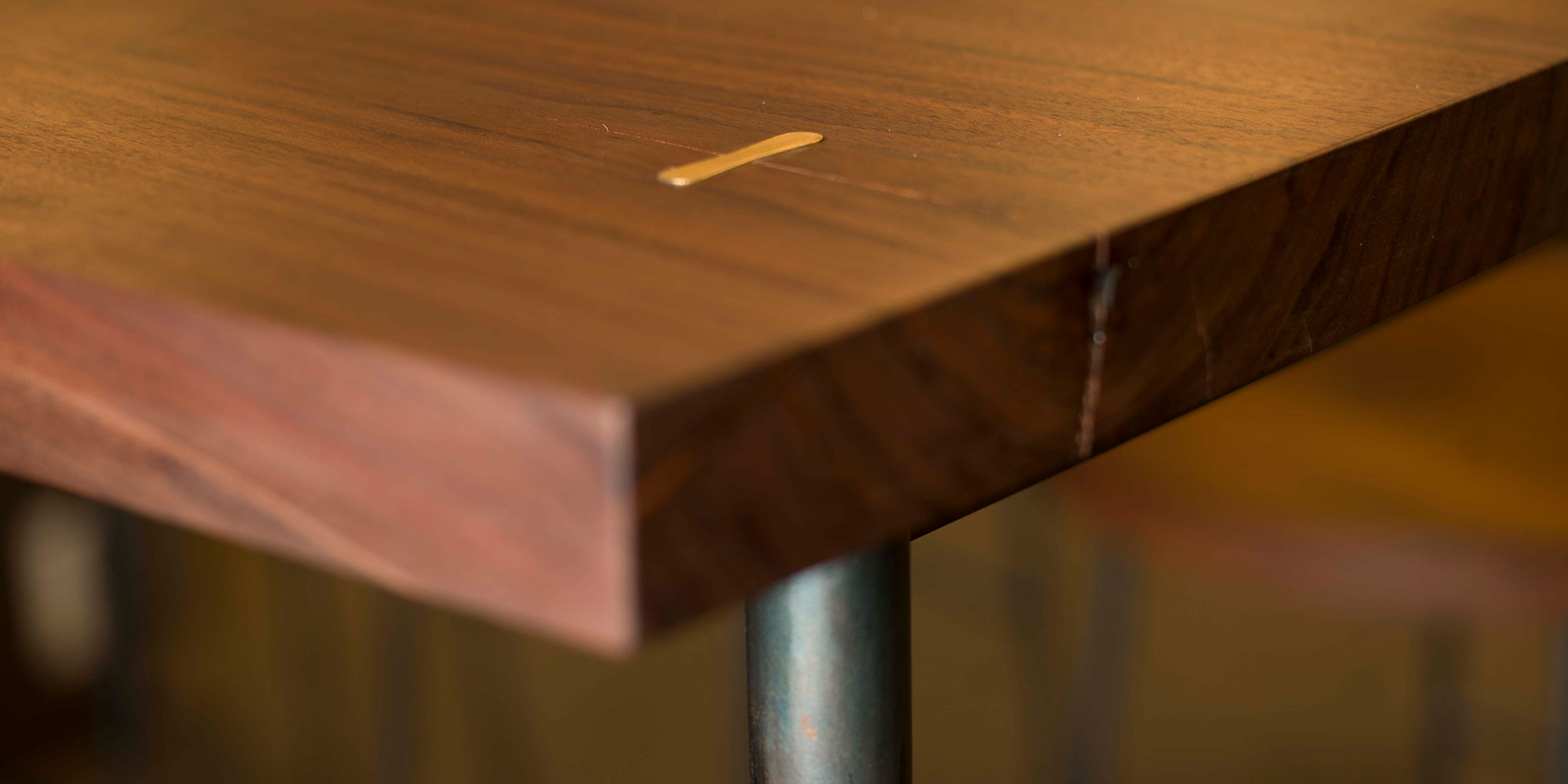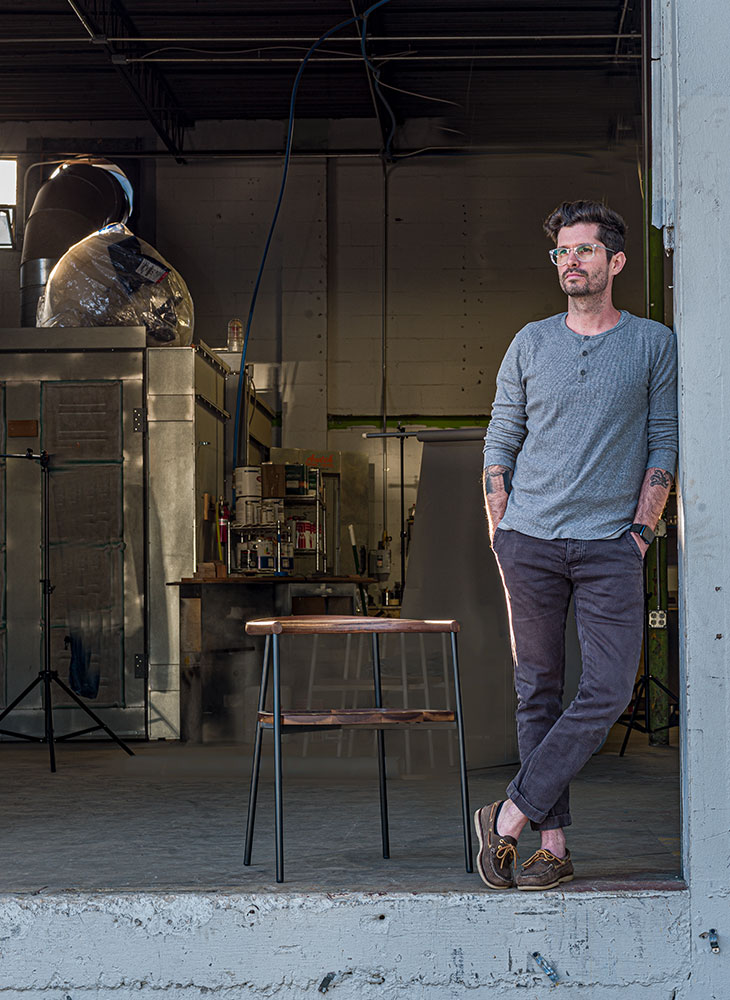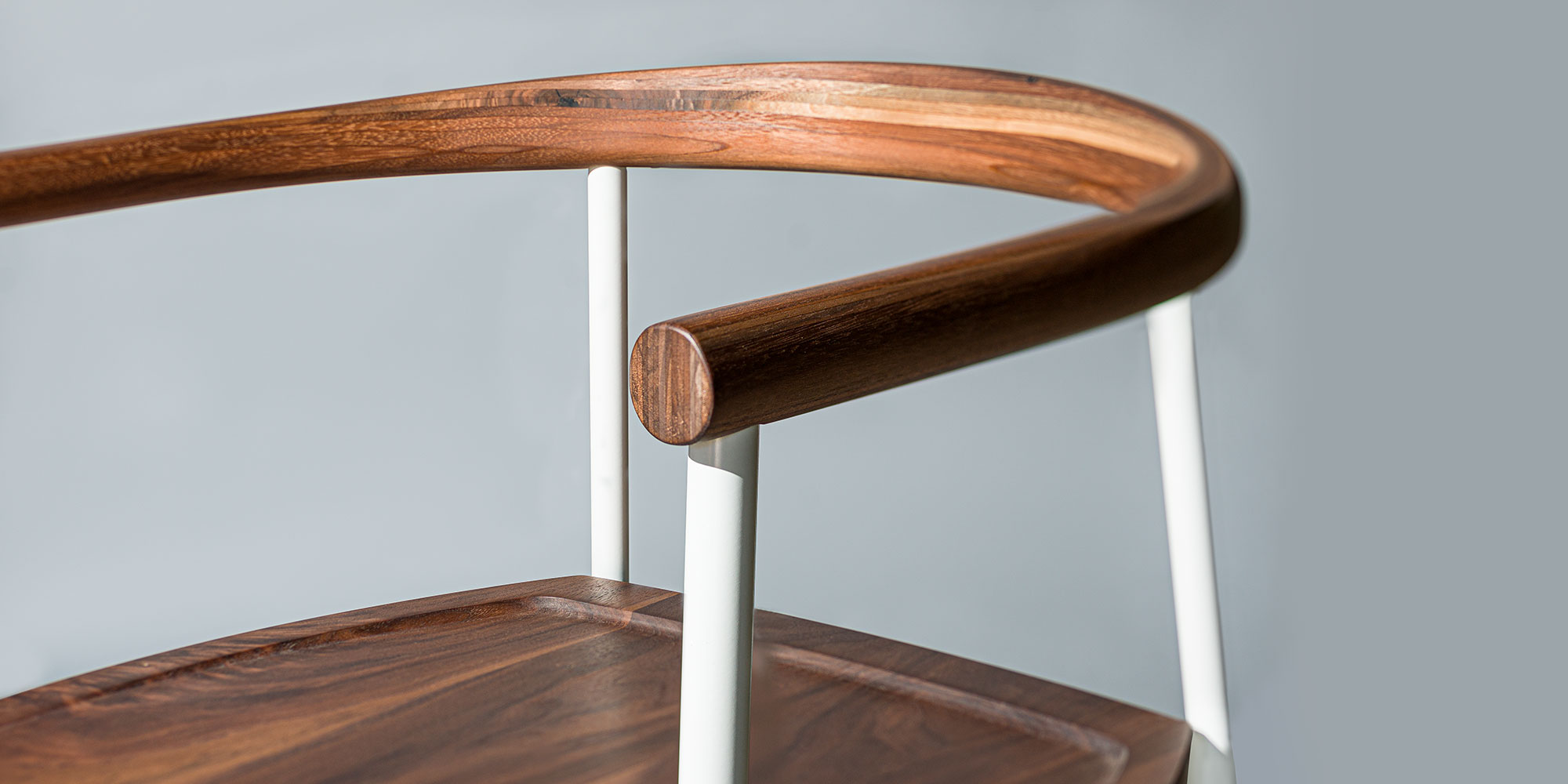From the loading dock of his furniture company’s North Hyde Park warehouse, Built founder Andrew Watson can see the cranes that increasingly dot the downtown skyline. It’s a constant reminder that Tampa’s rising wave is bringing people like Watson and his team right along with it.
“At the base of every one of those cranes, somebody needs furniture. So it’s such a cool time to be here,” Watson says.
He founded Built back in 2013 with a focus on sleek, modern, minimalistic, custom-made wooden furniture. The following year, his designs caught the eye of the BECK Group when they were in the process of building out Ulele. Built created the restaurant’s tabletops from reclaimed oak salvaged from a barn in North Florida, along with two 10-foot tables made with local Norfolk pine. It was this project that helped the company catch fire, Watson says.
“The Ulele project was kind of what gave me the push I needed to become an actual business, not just hang out with a table saw by myself,” he adds with a laugh.

The team of 12 has since seen their work installed in homes across the Tampa area and at commercial spaces like the offices of Embarc Collective, McKibbon Hospitality and Water Street Tampa developer Strategic Property Partners. Built has also created dining tables for places like Foundation Coffee, Haven and Armature Works. Most recently, they delivered a complete furniture package to the co-working and event space Hyde House. While Built made its name on built-in millwork pieces, Watson says they’re looking to do more furniture (like benches they built for Water Street Tampa’s brand-new office at Sparkman Wharf).
Every piece that Built makes is custom-created in their warehouse to each customer’s exact specifications. With the ability to come in, select specific woods and finishes, and see their piece in progress, customers get a hands-on experience that big box stores and online retailers can’t offer, Watson explains.
“Let’s say you want a TV cabinet, but you want drawers over here and doors here, and you need to fit a subwoofer,” he says. “We can build it exactly how you want it — the aesthetic that you want, the functionality that you want,” and the size that you want.
Plus, as Watson points out, a table or headboard created from a slab of a fallen tree is an inherently unique piece. “If somebody buys a table [from us], they’re the only person in the world who can have that table.”

Sometimes, clients’ visit to the workshop is their first realization that their furniture will be made locally, Watson says.
“I don’t think people know we manufacture here, which is interesting. I don’t know what they think, but people walk in and [say] oh, you actually build in here,” he says with a chuckle. “We’re literally manufacturing. We’re taking raw material and making it all here.”
This summer, Built will roll out its first furniture line. The collection is made up of some of the company’s staple furniture pieces, all of which are customizable. Pieces like the Willow chair, the Franklin credenza and the Fig stool are named after Tampa streets that have had an influential role in Built’s development. New machinery that will automate part of Built’s production process has finally allowed the company to offer some of its pieces to a broader market.
Like all businesses, Built is constantly looking forward — less for themselves than for the planet.
Watson has been passionate about sustainability since long before it was an industry buzzword. For all of their pieces, the company sources wood from trees that have already fallen or that are replanted after they’re cut down. Built uses small, leftover pieces of wood from large projects to create cutting boards, bowls and other small trinkets to prevent the material from going to waste.
Woodworking is inherently a carbon-neutral process, Watson explains. Carbon in the atmosphere is absorbed by trees. Even when a tree falls or is chopped down to become wood, the carbon that was removed from the atmosphere stays trapped inside — offsetting the carbon released while building furniture.
“But we’re constantly trying to be better at that. We’re trying to find wood that’s closer to [our facility]. We’re trying to have less waste,” he says. “[Sustainability] is constantly top-of-mind.”

“We just do it because it’s the right thing to do,” Watson says.
Not to mention, it can be pretty darn cool.
“I would love to run this with solar,” he adds, gesturing to the production facility around him. “I would love to get to the point where we could build furniture with the power from the sun.”
He grins.
“How insane would that be?”



